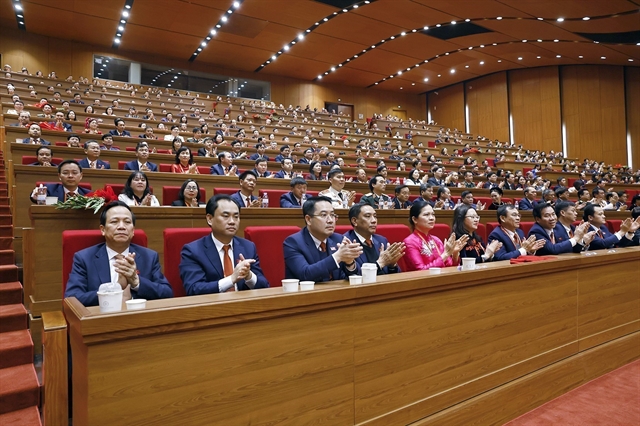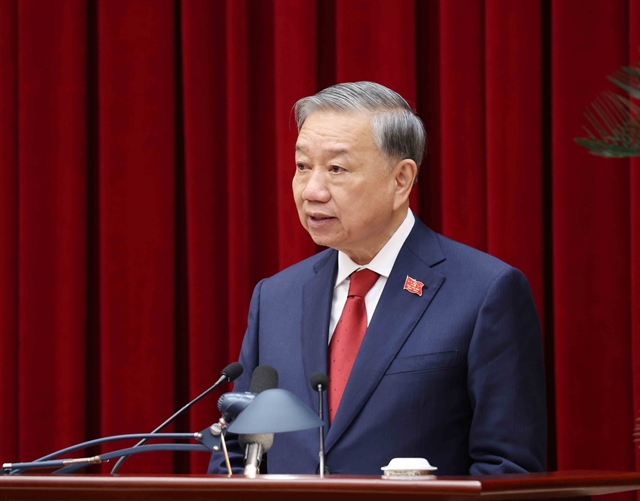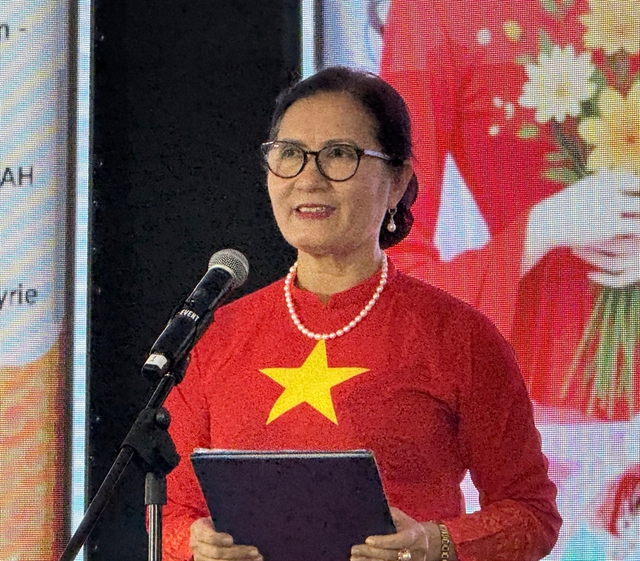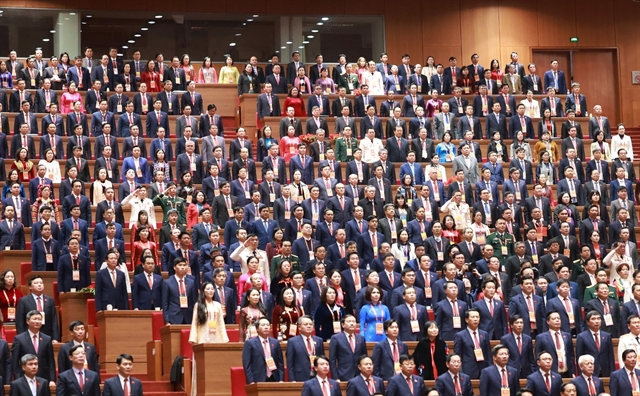 Politics & Law
Politics & Law

As many as 96.96 per cent of deputies at the first session of the 14th National Assembly yesterday approved a resolution determining there will be 27 members of the Government in the 2016-2021 tenure, the same number as the previous tenure.
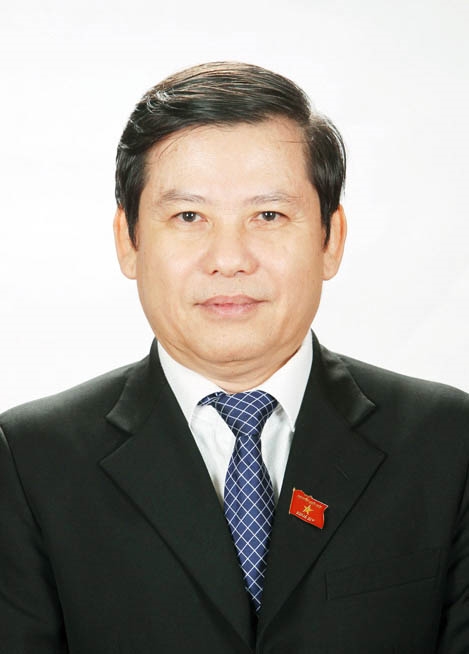 |
| Lê Minh Trí, Prosecutor General of the Supreme People’s Procuracy. |
HÀ NỘI – As many as 96.96 per cent of deputies at the first session of the 14th National Assembly yesterday approved a resolution determining there will be 27 members of the Government in the 2016-2021 tenure, the same number as the previous tenure.
Under the resolution, the Government comprises one Prime Minister, five Deputy Prime Ministers, including one Deputy PM cum Foreign Minister, and 21 ministers and heads of ministerial-level agencies.
The five Deputy PMs are Trương Hòa Bình, Phạm Bình Minh, who is also Foreign Minister, Vương Đình Huệ, Vũ Đức Đam and Trịnh Đình Dũng.
Deputies also proposed that the Government should assign a Deputy PM to control agriculture, climate change and environmental protection affairs and a Deputy PM to manage matters related to seas and islands.
Earlier, 95.75 deputies also approved a resolution on the NA’s supervision programme in 2017.
According to the resolution, in its third plenum, the NA will discuss an additional Government report on the socio-economic plan and State budget in 2016, and draw up a plan for early 2017, together with a report on the State budget balance for 2015 as well as reports from agencies.
Deputies are scheduled to conduct question and answer sessions, and touch upon law enforcement in food safety in the 2011-2016 period.
In the fourth plenum, they will give comments on the Government’s report on the implementation of the socio-economic plan and State budget in 2017, as well as reports on the performance of ministries and agencies. During the meeting, deputies will also discuss the execution of laws in State administrative reform from 2011-2016.
On July 28, the legislators are scheduled to approve the PM’s proposal to appoint Deputy PMs, ministers and other Cabinet members through secret voting.
Earlier, yesterday, Prime Minister Nguyễn Xuân Phúc proposed the structure of the Government for the 2016-2021 tenure during the 14th National Assembly’s first session.
According to his proposal, the Government’s structure will remain at 27 members, including one Prime Minister, five Deputy Prime Ministers, including one Deputy PM cum Foreign Minister, and 21 ministers and heads of ministerial-level agencies.
Head of the National Assembly (NA)’s Law Committee Nguyễn Khắc Định delivered a report on the number of Government members, in which the committee agreed with the Prime Minister’s proposal as this structure accords with the legislature’s resolution on the structure of the Government, and proved effective in the previous tenure.
However, several members of the NA committee proposed assigning one Deputy PM in charge of agricultural affairs, and assigning a Cabinet member to undertake the Foreign Minister post.
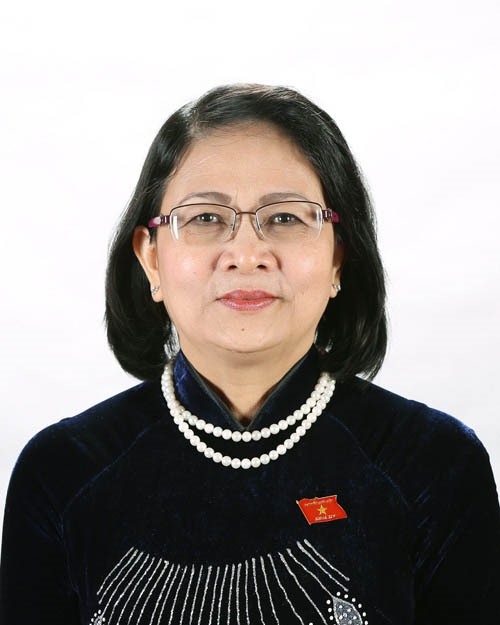 |
| Đặng Thị Ngọc Thịnh, Vice President. |
Legislators cast secret ballots to elect the Vice State President, Chief Judge of the Supreme People’s Court and Prosecutor General of the Supreme People’s Procuracy in Hà Nội yesterday on the sixth working day of the 14th National Assembly’s first session.
Some 478 out of 488 deputies present at the plenary sitting, or 96.76 per cent of the total lawmakers, voted for Đặng Thị Ngọc Thịnh as Vice President for 2016-2021. With 473 approval votes, or 95.75 per cent, Nguyễn Hòa Bình was elected as Chief Judge of the Supreme People’s Court. Some 448 deputies, or 90.69 per cent, chose Lê Minh Trí for the post of Prosecutor General of the Supreme People’s Procuracy.
The parliament then approved draft resolutions on electing the positions with a majority of “for” votes.
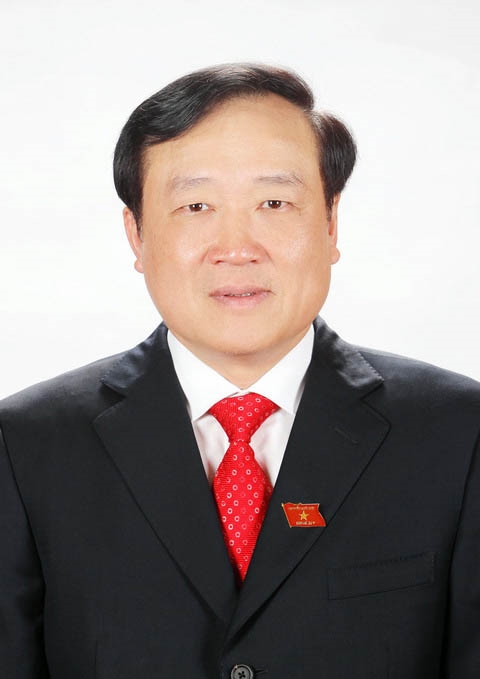 |
| Nguyễn Hòa Bình, Chief Judge of the Supreme People’s Court. |
n his inaugural address, Bình vowed to “absolutely be loyal to the nation, people and the Constitution, and make concerted efforts to fulfill the tasks assigned by the Party, the State and people.”
He pledged to build a court system that protects justice, human rights, citizens’ rights, socialism, the State’s interests, and legitimate rights and interests of organisations and individuals.
Bình called on legislators to increase their supervision over all-level courts’ activities in order to make the court a symbol of justice, deserving of people’s expectations. — VNS

